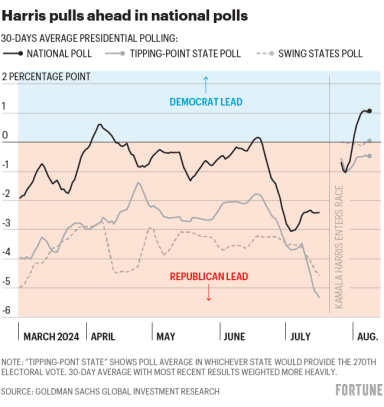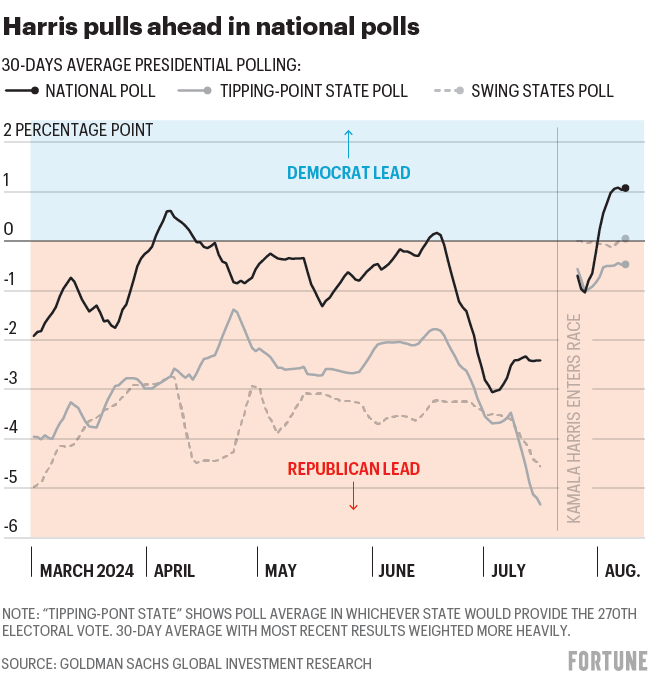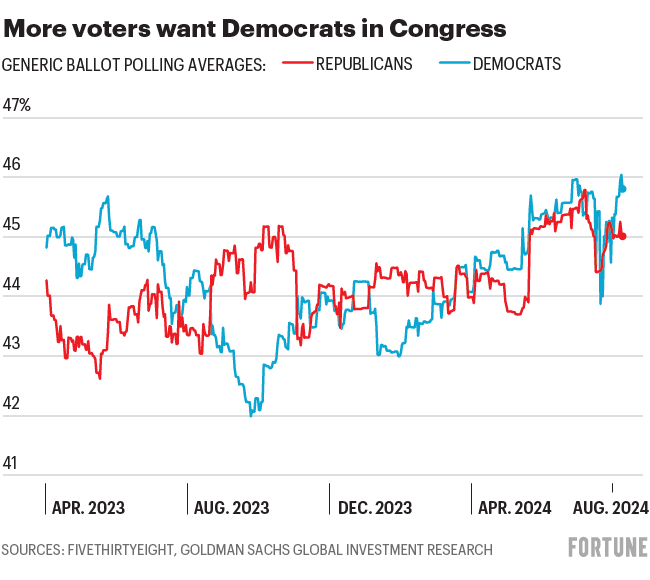Goldman Sachs says voters are shifting to Kamala Harris—and the odds of a blue wave are swelling
Harris has a 3 percentage point lead on Trump in national polls.

Kamala Harris has pulled ahead of Donald Trump in national polls as voters turn away from third parties and the odds of a blue wave increases, according to Goldman Sachs.
The vice president is up by about three percentage points nationally since she became the presumed Democratic nominee after President Biden ended his reelection bid last month. Her margins have also improved in key swing states, including Pennsylvania, with 19 electoral votes, where Trump has just a 0.2 percentage point lead over Harris, according to the Goldman analysts. The vice president needs at least 270 electoral votes to win the election.
The momentum built up by Harris in just a month has increased the odds of a blue sweep of the White House and Congress, something that looked improbable until recently, according to the investment bank. Yet, prediction markets are still betting narrowly that Harris will win the White House, with Democrats taking the House and Republicans taking the Senate, the analysts wrote.

Harris’s boost in the polls, which could be lifted by another two percentage points following the Democratic National Convention next week, comes as third-party support plummets, especially since President Biden dropped out of the race.
Voter support for third-party candidates, including Robert F. Kennedy Jr., Jill Stein, and Cornel West, fell to 6% from more than 10% before Biden ended his reelection bid.
“While third-party candidates had been drawing slightly more from Biden earlier in the year, what is left of third-party support seems to be coming at least as much from former President Trump,” the analysts wrote.
The percentage of undecided voters also began declining soon after Harris’s entry into the race, and is now half of what it was a month ago. Those undecided voter numbers are likely locked in, according to the investment bank.

Although Harris’s polling has improved, recent economic instability could hurt her chances of being elected in November, according to the analysts. Last week, all major indices closed down for the week after the unraveling of the yen carry trade led to big moves by traders. Weaker-than-expected jobs numbers also yielded concern as the unemployment rate rose for the third straight month to 4.3%.
Despite the recent turmoil, 42% of voters think Harris would be better than Trump at handling the economy, according to a recent poll by the Financial Times and the University of Michigan Ross School of Business.
While the Goldman analysts said in the Monday note that a Harris economic plan would likely mirror Biden’s proposals with a few additions, a majority of voters surveyed by the FT and University of Michigan poll said Harris should break completely from Biden or “make major changes” to his economic proposals.





